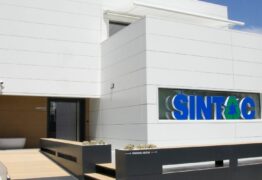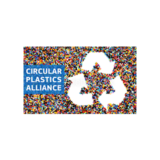Which countries recycle the most in the world?
Recycling has become an increasingly important practice worldwide due to the impact that waste has on the environment. The accumulation of plastic waste is one of the biggest environmental problems we face today, and action needs to be taken to address this problem effectively. The following will explore the questions raised above in relation to recycling in the world and in Spain.
Firstly, it is important to note that not all countries have the same level of awareness and commitment to recycling. Some countries are more advanced in this area than others, and there are a number of factors that influence this reality, such as the availability of recycling infrastructure, environmental education, culture of sustainability, technology and public policies.
Top recycling countries in the world
According to data compiled by the Organisation for Economic Co-operation and Development (OECD), the top recycling countries in the world are Austria, Germany, South Korea, Slovenia, the Netherlands and Switzerland. These countries have a recycling rate of over 50%, which means that more than half of the waste generated is recycled.
Germany in particular stands out for its commitment to the environment and recycling. The country has a recycling rate of 56.1%, which means that more than half of waste is recycled rather than ending up in landfills or incinerators. In addition, Germany is known for its deposit and return system, which encourages citizens to recycle bottles and beverage cans by providing a small refund in return.
Another leading country in terms of recycling is South Korea, which has a recycling rate of 53.7%. South Korea has established a highly efficient waste collection system and has invested in advanced technologies for recycling materials. In addition, South Korea has implemented public policies to encourage recycling and waste reduction, such as banning plastic bags in shops and supermarkets.

What percentage of plastic is recycled worldwide?
When it comes to the percentage of plastic that is recycled worldwide, the situation is worrying. According to a report by the Ellen MacArthur Foundation, only 9% of the plastics produced worldwide are recycled. The rest ends up in landfills, incinerators or in nature, causing serious damage to the environment and human health.
This low plastic recycling rate is due to a number of factors, among them:
- Lack of adequate recycling infrastructure;
- lack of environmental education;
- the lack of economic incentives for recycling;
- the complexity of recycling processes in some cases.
Furthermore, plastic is a material that takes hundreds of years to decompose, which means that the accumulation of plastic waste is a growing problem worldwide.
How much plastic is recycled in Europe?
According to the most recent data published by Eurostat in 2019, 41.9% of plastic waste generated in the European Union (EU) was recycled, an increase of 1.6% on the previous year. This percentage varies significantly between EU countries, with Northern European countries leading the recycling rates and Southern and Eastern European countries with lower rates.
It is important to note that 41.9% refers to the recycling rate of plastic waste in general, including both household plastic waste and plastic waste from industrial and commercial sources. If we focus specifically on plastic packaging recycling, the recycling rate in the EU was 42.4% in 2019, indicating that there is still room for improvement to reach the targets set by the EU for 2025 and 2030.

In this regard, the EU has set a number of ambitious targets in its circular plastics strategy, with the aim of boosting the circular economy and reducing the environmental impact of plastic waste. Some of the targets include achieving a recycling rate of 50% of plastic waste generated in the EU by 2025 and 55% by 2030, and ensuring that all plastic packaging is recyclable or reusable by 2030.
To achieve these objectives, the EU has proposed a number of measures, such as banning certain single-use plastic products, promoting eco-design and improving waste management throughout the value chain, from production to waste management. In addition, incentives and funding have been put in place to promote innovation in plastics recycling and the circular economy.
In conclusion, although the recycling rate of plastics in Europe has increased in recent years, there is still room for improvement to achieve sustainable management of plastic waste and reduce its environmental impact. The EU has set ambitious targets in its circular plastics strategy and is taking steps to promote the circular economy and sustainable waste management, but further progress is needed at the global level.
How much plastic is recycled in Spain?
In relation to the amount of plastic recycled in Spain, according to Eurostat data, 29.7% of the plastic produced in the country was recycled in 2019. This percentage is above the European average, which was 25.8% in the same period.
Despite this progress, there is still much to be done in Spain in terms of plastic recycling. The Ellen MacArthur Foundation report mentioned above shows that only 42% of plastic packaging is recycled in Spain, which means that there is a large amount of plastic waste that is not recycled and ends up in landfills or incinerators.
To improve this situation, further progress is needed in the development of plastic recycling infrastructures and the establishment of public policies to encourage recycling and waste reduction. In addition, it is important to continue promoting environmental education to raise public awareness of the importance of recycling and the need to reduce the consumption of single-use plastics.

In this sense, there are innovative initiatives and projects in Spain that seek to improve plastics recycling, such as the creation of advanced technologies for recycling materials, the promotion of eco-design to reduce the amount of waste and the use of biodegradable materials, and the establishment of selective waste collection systems in cities.
In conclusion, the recycling of plastics is an issue of great importance today due to the impact that waste has on the environment and human health. While some countries are more advanced in this area than others, more work needs to be done worldwide to improve recycling rates and reduce the amount of waste generated. In Spain, progress has been made in the right direction, but there is still much to be done to achieve more efficient and sustainable plastics recycling.













